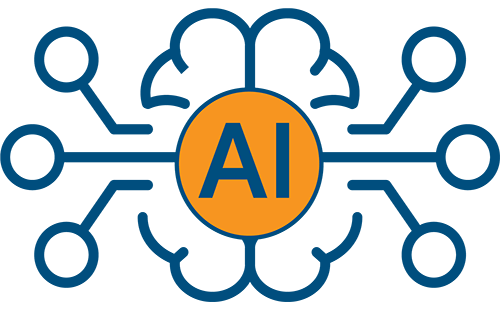Các dịch vụ gian lận bất hợp pháp đe dọa tính chính trực trong học tập và chúng khiến sinh viên phải đối mặt với các tội phạm. Nghiên cứu1 cho thấy những người điều hành các dịch vụ gian lận bất hợp pháp này sẽ đe dọa thông báo cho trường đại học hoặc nhà tuyển dụng tương lai của sinh viên về hành vi gian lận của sinh viên trừ khi sinh viên đó trả cho họ một khoản tiền lớn.
Úc đã cấm các dịch vụ gian lận thương mại và quảng cáo các dịch vụ này cho sinh viên. Luật chống lại các dịch vụ gian lận thương mại bao gồm các hình phạt hình sự như phạt tiền lên đến 100.000 đô la cho những người điều hành. Những người cung cấp dịch vụ gian lận miễn phí cũng phải đối mặt với việc bị truy tố dân sự. Các luật này không phạt những sinh viên sử dụng các dịch vụ này để gian lận nhưng các chính sách kỷ luật của cơ sở giáo dục sẽ tiếp tục được áp dụng.
TEQSA đã soạn thảo các thông tin sau đây để giúp sinh viên xác định, tránh và báo cáo các dịch vụ gian lận bất hợp pháp. Các thông tin này có mục đích bổ sung, nhưng không thay thế, bất kỳ lời khuyên nào bạn có thể nhận được từ cơ sở giáo dục của mình.
Xác định một dịch vụ gian lận bất hợp pháp

Các dịch vụ gian lận thương mại bất hợp pháp có thể bao gồm các trang mạng và các cá nhân hoặc các nhóm tiếp thị hoặc cung cấp các dịch vụ gian lận cho sinh viên.
Các dịch vụ gian lận bất hợp pháp - đôi khi còn được gọi là dịch vụ gian lận hợp đồng - bán các bài luận hoặc bài tập của sinh viên hoặc chấp nhận trả tiền cho một người nào đó thay mặt sinh viên tham gia kỳ thi.
Thông thường, các dịch vụ này tự tiếp thị như một nơi cung cấp 'hỗ trợ học tập'. Nhiều người trong số các nhà điều hành bất hợp pháp này sẽ yêu cầu sinh viên tải lên bài làm hoặc tài liệu trước đây từ khóa học của mình để truy cập vào ‘hỗ trợ’ được quảng cáo này.
Một số dịch vụ bất hợp pháp này tiếp thị mạnh mẽ qua mạng xã hội, email và trong khuôn viên trường. Họ cũng có thể tìm thấy bạn thông qua các bài đăng trên mạng xã hội của bạn. Ví dụ: một sinh viên có thể đăng trên mạng xã hội về một bài luận mà họ đang viết và sau đó nhận được nhiều tin nhắn ‘tự động’ đề nghị các dịch vụ gian lận thương mại bất hợp pháp.
Tránh các dịch vụ gian lận bất hợp pháp

Việc xác định các dịch vụ gian lận bất hợp pháp đôi khi có thể khó khăn nhưng bạn nên luôn tránh bất kỳ dịch vụ nào:
- hứa giúp viết hoặc cải thiện bài luận hoặc bài tập của bạn hoặc thay mặt bạn làm bài kiểm tra để đổi lấy tiền
- đề nghị việc 'hỗ trợ học tập' không có yêu cầu thông qua phương tiện truyền thông xã hội, email hoặc quảng cáo trong khuôn viên trường
- yêu cầu bạn tải lên một ví dụ trước đây về bài làm của bạn hoặc tài liệu từ khóa học của bạn, để nhận được trợ giúp
- đề nghị bán cho bạn các ghi chú bài học, bài kiểm tra hoặc tài liệu đánh giá khác.
Sinh viên gặp khó khăn trong học tập phải luôn nói chuyện với gia sư hoặc điều phối viên khóa học của mình. Họ có thể giúp bạn truy cập các lựa chọn hỗ trợ học tập và cũng bảo vệ tính chính trực trong học tập của bạn.
 |
Lời khuyên: Việc chặn các tin nhắn không có yêu cầu mà bạn nhận được qua mạng xã hội hoặc email trong đó đề nghị hỗ trợ học tập, viết tiểu luận hoặc cung cấp các dịch vụ gian lận hợp đồng khác có thể giúp bạn tránh các dịch vụ gian lận bất hợp pháp và duy trì tính chính trực trong học tập của mình.
Hãy lưu ý thông tin bạn chia sẻ trên các mạng xã hội và xem xét các cài đặt quyền riêng tư của bạn. Điều này có thể giúp bạn tránh các nhà khai thác dịch vụ gian lận bất hợp pháp nhắm vào mình.
|
Báo cáo các dịch vụ gian lận bất hợp pháp

TEQSA và các trường đại học của Úc làm việc cùng nhau để chia sẻ thông tin tình báo về các dịch vụ gian lận bất hợp pháp. Điều này hỗ trợ các cơ sở giáo dục bảo vệ quyền lợi của sinh viên và tính chính trực trong học tập bằng cách bảo vệ các hệ thống mạng của họ chống lại các dịch vụ bất hợp pháp.
Nơi để báo cáo một dịch vụ bị nghi ngờ gian lận thương mại
Cho Trường học của bạn
Nếu bạn nhận được tài liệu email quảng cáo các dịch vụ gian lận bất hợp pháp bị nghi ngờ thông qua tài khoản email của cơ sở giáo dục hoặc nhìn thấy một trang mạng bị nghi ngờ gian lận trên mạng của cơ sở giáo dục của bạn, hãy báo cáo cho trường học hoặc trường đại học của bạn. Bạn cũng nên thông báo cho họ nếu bạn nhìn thấy các áp phích, thông báo hoặc danh thiếp trong khuôn viên trường quảng cáo các dịch vụ gian lận bất hợp pháp.
Cho TEQSA
Nếu bạn gặp phải một dịch vụ gian lận bất hợp pháp bị nghi ngờ, bạn có thể báo cáo bằng cách điền vào mẫu đơn trực tuyến của chúng tôi.
Ghi chú
- Yorke, J., Sefcik, L., & Veeran-Colton, T. (2020). Contract cheating and blackmail: a risky business? Studies in Higher Education.
Quay lại trang đích Hiểu biết về Tính Chính trực trong Học tập
![]()


















